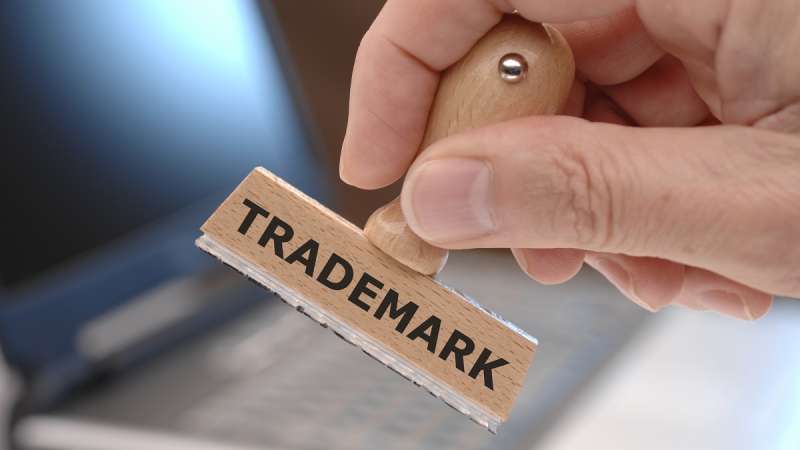Our Alternate Dispute Resolution Service
Mediation
1. What is it?
Mediation is a widely-used form of alternative dispute resolution which can either be used on its own or can be used while litigation remains ongoing.
Mediation involves the introduction of an independent and neutral third party mediator, who will work with the parties and their legal representatives in an effort to settle the dispute and reach a deal or settlement, or if this is not possible, narrow the issues in dispute between the parties.
Mediation is voluntary and neither party can be forced to settle the dispute through mediation, if it does not want to.
Mediation provides a forum outside of the formal atmosphere of the Courts by which the parties can discuss and understand the other’s position and work together towards a resolution.
During the mediation itself, the mediator will meet privately with the parties, generally to discuss the strengths and/or weaknesses of each party’s case and try to establish common ground or sticking points, which can then be examined and discussed in further detail.
As a party’s discussions with the mediator take place in private without the other party being there, this provides comfort to parties to consider their case realistically, knowing that any damaging or harmful information provided to the mediator will not be divulged to the other side, unless they agree to do so.
Not all cases settle at mediation and it is important to note that all parties have to want to settle the dispute in order for a settlement to be reached. That being said, mediation has a high success rate and it is now the most commonly used method of ADR.
2. What will happen?
In advance of the mediation day, the parties’ legal representatives will agree upon and prepare a mediation bundle, which will be provided to the mediator for his/her review before the start of the mediation. This ensures that the mediator is familiar with both the parties and the dispute before the mediation actually kicks off.
Every mediator has their own method and style but it is common for the mediator to separate the parties into separate rooms to begin with, before bringing the parties together for a joint session and explaining his/her role and the plan for the day ahead. At this point, the mediator may decide that each party should make an opening statement to the other, setting out its position and saying what it wants to get out of the mediation.
This might not happen at every mediation, and is less likely to occur if there has been a breakdown in relationships between the parties, whereby the opening statements may only inflame the situation and damage relationships further, reducing the chances of the dispute settling.
After this opening session, the parties will again separate into their respective rooms and the mediator will flit between the parties, conveying arguments, concessions and hopefully, offers of settlement.
3. Do I have to mediate?
No, but the Courts now take a dim view upon parties who unreasonably refuse to mediate and may impose costs penalties if you don’t have a good reason for saying no to mediation.
4. Who is the mediator and what will he/she do?
The mediator will be an impartial third party and is often a former or current solicitor or barrister. Depending on the nature of your dispute, it may be necessary for the mediator to have specialist knowledge of the subject matter of your dispute for example, in a complex property dispute, it might be beneficial for the mediator to have that specialist experience, in order to fully understand the background or detail of the dispute.
The mediator’s role is to facilitate settlement between the parties, which might require the transmission between the parties of questions, information, arguments and offers. This may mean that the mediator needs to play devil’s advocate in order to get a party to accept a weakness in their case to make a concession or alternatively, push a party’s assessment of their likely damages to get them to go higher or lower in terms of making an offer.
5. What happens if it doesn’t work?
While mediation is a generally successful form of ADR, unfortunately, it does not always work. Mediations are almost always confidential and carried out on a without prejudice basis. This means that nothing that is said at the mediation can be disclosed to the Court if the mediation does not successfully settle the dispute. This has to be the case to encourage the parties to make a really genuine attempt to settle the dispute without the fear that any concessions or offers made at the mediation might make their way to the Judge at trial, just in case the mediation does not work.
Arbitration
As opposed to mediation, arbitration is a binding form of ADR in that either a sole arbitrator or a panel of arbitrators will make a decision which is binding on all the parties, from which there are only limited avenues to challenge the arbitrator’s decision.
The parties may determine the rules which they are to abide by in the arbitration or where relevant, the arbitration will be conducted according to the rules of an arbitral organisation, such as the International Chamber of Commerce.
This kind of arbitration often results from a specific clause in a contract requiring parties to resolve any disputes which might arise, through the process of arbitration.
Adjudication
Adjudication is a form of ADR which is specific to construction disputes. The purpose behind adjudication is to resolve disputes quickly and provide a cash-flow remedy, while keeping intact working relationships, in order that construction projects can continue without delay, fallout or great cost.
Adjudication is often described as “pay first, argue later” or “quick and dirty” and has the effect of resolving disputes quickly, to keep construction projects on track without the need for lengthy court proceedings.
Part 36
Part 36 refers to Part 36 of the Civil Procedure Rules 1998 (CPR). Part 36 deals with offers of settlement which must meet very technical rules and which carry potentially very beneficial or punitive consequences in relation to damages and costs.
The purpose of Part 36 is to provide a real incentive to parties to focus their minds on settlement. For example, if a Claimant makes a Part 36 offer to settle a dispute, which is not accepted by the other side, and the Claimant goes on to beat its Part 36 offer at trial, it will receive a number of benefits, including a 10% uplift on the amount of damages awarded as well as beneficial costs consequences.
As a result, rejecting or accepting a Part 36 offer is a very serious decision to be made.
Making a Part 36 offer is therefore, a very tactical way of putting pressure on the other side to accept the offer of settlement or risk being faced with punitive consequences.
Settlement
Parties to a dispute are able to settle their dispute between themselves at any time, whether this be before court proceedings are even commenced or during the trial.
It is important to always consider, at all stages of litigation, whether it is possible to settle the dispute without the need to continue with the court proceedings.
The time period from commencing court proceedings to actually reaching a court room for a trial can take many months, if not years, and during this time, anything can happen and it often does.
Therefore, while at the start of court proceedings, a party may not be interested in settlement, the disclosure of just one document has the capability to turn a party’s case upside down, so the prospects of settlement must always be borne in mind, regardless of the stage of proceedings which the parties are at.
Our Approach to Alternate Dispute Resolution
We have a flexible approach to litigation to suit different circumstances.
Sometimes it will be more appropriate to seek a swift judgement through the Courts than be involved in protracted litigation.
However, we have significant experience and regularly utilise alternative forms of dispute resolution such as mediation and arbitration.
Why Work With Our Dispute Resolution Team
- For the past seven years, the Legal 500 has rated us as a Top Tier legal firm.
- You will get access to more than 9 dispute resolution professionals from the Myerson Dispute Resolution Group, who will assist you with , shareholder, and partnership disputes, professional negligence, commercial agency and more.
- You will obtain city-quality dispute resolution legal help at regional pricing.
- We offer a partner-led service to make sure you get the greatest legal counsel and support with a focus on business.
- Our large and experienced team can work quickly to fulfil your deadlines.
- We recognise that each transaction is unique to your specific circumstances and that you require the assistance of a dispute resolution solicitor who has dealt with a wide range of clients and types of work.
- We are a full-service law company with a single location, which ensures our employees interact effectively and efficiently.
- We employ the most recent technology to make sure that we are operating as effectively as possible and that a client's location is not a barrier to us providing outstanding customer service.
- All of our clients receive free newsletters and webinars that keep them informed about dispute resolution legal developments. View our most recent webinar on dispute resolution updates here.
- Check out the Myerson Promise for more information on the benefits of working with us.
Funding
Our Dispute Resolution Solicitors are happy to discuss your situation in a no-obligation and free consultation by telephone.
We also offer different funding arrangements to suit your individual needs. Conditional fee agreements or “No win, no fee” arrangements may be available, as may insurance policies or third-party funding.
At Myerson, our litigation funding team will provide guidance in handling the financial risk that comes with litigation and directing any of those costs off your credit sheet.
We understand the costs that come with litigation, which is why we act with integrity. We will only provide funding as an option if it is in your best interests. We can advise you on whether your claim is suitable for litigation funding.
Find out more about the different litigation funding options that may be available to you.
Testimonials
Meet Our Specialists
Home-grown or recruited from national, regional or City firms. Our specialists are experts in their fields and respected by their peers.
Contact Our Experts
You can contact our lawyers below if you have any more questions or want more information:






